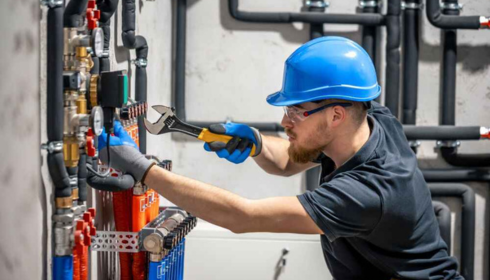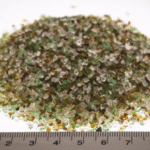There’s something oddly comforting about the sound of running water — a shower warming up in the morning, the soft gurgle of a sink draining after dinner. We take it for granted, really. Water comes when we need it and disappears when we’re done. But behind that everyday magic lies an invisible network — a mix of skill, timing, and hard-earned experience that keeps life flowing quietly and cleanly.
Plumbing isn’t glamorous. It doesn’t get the spotlight like interior design or smart home tech. Yet, without it, even the most beautiful home would turn chaotic in a matter of hours.
The Quiet Professionals Who Keep It Flowing
Every homeowner has that one story — a leak that showed up at midnight, a burst pipe during winter, or a shower that suddenly turned cold for no reason. And right at that stressful moment, when you’re half-panicked and knee-deep in towels, someone shows up with a toolbox, a calm expression, and an unshakable confidence.
Those people are the real backbone of our daily comfort — the plumbing experts who know exactly how to fix what we can’t even see. They don’t just patch problems; they restore a sense of normalcy.
Their work goes far beyond tightening fittings. They understand pressure systems, pipe materials, and building codes like a second language. They know how to balance efficiency with safety — and they do it all while wading through crawl spaces, attics, and sometimes knee-deep water.
Why Plumbing Isn’t Just “Fixing Pipes”
A good plumber doesn’t see a problem as just a problem — they see it as a system breakdown that needs understanding. The water won’t heat up? It might be the heater, or it might be the supply line. That slow drain? Could be a simple clog, or it might point to something deeper underground.
That’s the thing about plumbing — it’s part science, part detective work. And it takes experience to know the difference between a minor fix and a ticking time bomb.
Modern plumbing systems are more complex than ever, blending traditional designs with new technologies. From high-efficiency water heaters to touchless faucets and filtration systems, plumbers now need to be part technician, part engineer, part problem-solver.
The Heart of Every Home (and Business)
Water is everywhere in our lives — kitchens, bathrooms, offices, schools, hospitals — all running smoothly thanks to miles of hidden pipes and valves. Whether you’re living in a century-old home or working in a modern commercial building, plumbing systems connect everything quietly in the background.
That’s why plumbing contractors play such an essential role in both residential and commercial construction. They’re not just installers — they’re planners. Before a single wall goes up, they’re mapping out where every drain, pipe, and connection will go. They work hand-in-hand with architects, electricians, and builders to ensure that the system isn’t just functional — it’s efficient, durable, and compliant with codes.
And once the building is done? They’re the ones who come back when something inevitably goes wrong — because even the best systems need care, and time always finds a way to test every seal and joint.
Plumbing’s Human Side
There’s a funny misconception that plumbing is purely mechanical — wrenches, fittings, solder, and sealant. But if you’ve ever watched a seasoned plumber at work, you’ll notice something different. There’s a rhythm to it. A patience. They move through their tasks with quiet confidence, reading the system like a story.
For them, every sound matters — the hiss of escaping air, the echo of water in a pipe, the faint vibration that tells them where the problem lies. It’s not guesswork; it’s intuition built from years of hands-on experience.
And beyond the technical stuff, plumbers are also communicators. They have to explain problems in plain language, reassure homeowners, and sometimes calm down someone who’s convinced their house is falling apart. It’s not just about fixing leaks — it’s about restoring trust.
Modern Tools, Old-School Values
Today’s plumbers have access to technology that makes the job faster and more precise. Camera inspections, hydro-jetting, ultrasonic leak detection — these tools make diagnosing problems more accurate than ever.
Yet, what really separates good plumbers from great ones isn’t just the tools — it’s the mindset. The willingness to go the extra mile. To crawl under the house in freezing weather, or work until midnight to make sure a family has running water again.
That old-school pride still runs deep. And it’s what keeps the trade alive in an age where automation and convenience dominate everything else.
The Specialists Behind the Scenes
Not all plumbers do the same kind of work. Some focus on new construction, some on maintenance, others on large-scale industrial systems. You’ll find plumbing technicians in hospitals, factories, and research facilities — places where water systems have to meet incredibly strict standards.
These professionals don’t just handle repairs; they manage everything from medical gas lines to wastewater treatment equipment. Their job is part safety, part science, and entirely vital.
The title “technician” might sound clinical, but in reality, these folks are hands-on problem-solvers who blend analytical thinking with physical skill. They’re the reason you can trust that every drop of water — whether for drinking, cleaning, or heating — moves safely through the system.
When Things Go Wrong (And They Always Do)
Let’s be honest: nobody calls a plumber on a good day. They get the call when chaos hits — when the toilet overflows, when the basement floods, when the water suddenly runs cold.
And somehow, they always show up calm. They’ve seen it all. A plumber doesn’t flinch when a ceiling caves in or when a customer’s stress levels hit the roof. They just roll up their sleeves and start working.
That quiet steadiness, that reliability — it’s what makes them invaluable. You might not remember their name after they leave, but you’ll remember the relief you felt when everything started working again.
The Environmental Shift in Plumbing
Plumbing today isn’t just about function — it’s about sustainability. Plumbers are now at the forefront of water conservation and energy efficiency. They’re the ones installing low-flow fixtures, recommending energy-efficient water heaters, and setting up rainwater collection systems.
In a world facing droughts and rising energy costs, plumbers aren’t just maintaining comfort — they’re protecting resources. Every smart installation, every efficient repair contributes to a greener, more responsible home.
A Final Word of Appreciation
Plumbers rarely make headlines. They don’t get viral videos or awards shows. But they do something more meaningful — they keep our homes, workplaces, and communities running without a hitch.
They’re the unsung stewards of hygiene, safety, and comfort — solving problems that most of us couldn’t begin to fix.



